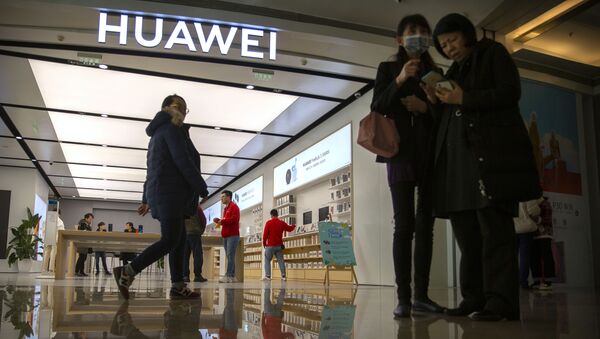In an interview with Deutsche Welle on Thursday, Huawei's Chairman Liang Hua focused on his company's current challenges following Washington’s move to blacklist the Chinese tech giant earlier this year.
“Despite all the pressure, our top priority is to ensure survival”, Liang said, adding that he shares Huawei founder Ren Zhengfei’s view that their company is like “a plane that kept flying even after being riddled with bullet holes, but it finally made its way back home”.
“To land safely, we have to solve many problems and patch up these holes one by one, like redesigning some of our products and ensuring supply continuity”, Liang pointed out.
He said that due to the fact that Huawei’s business presence in the US is “virtually non-existent,” the company is focusing its efforts on the countries where its “products and services are welcomed.”
Huawei Supports Globalization in Developing 5G
Liang dismissed allegations that the future of 5G technology will only be determined by Huawei and controlled by Beijing.
“We don't want to close ourselves off for the sake of pursuing independent innovation and self-sufficiency. If we only depend on ourselves, we will not be able to compete in the future global market. At Huawei, we firmly support globalisation, especially for our supply chain”, he underscored.
At the same time, he made it clear that Washington’s actions prompted Huawei to design and develop many of its components on its own.
“If the US government allows American companies to resume supply to Huawei, we will still buy US components to build our supply chain,” Liang noted.
In this vein, he rejected claims that Huawei's leading role in 5G technology could be used by Chinese authorities for global espionage.
“Huawei only provides equipment, and does not participate in network operations, so we have no access to user data,” Liang said, adding that over the past few years, the tech giant has never received any requests to deliver information to the state.
“And even if we received such requests in the future, we would not agree to them. Without any lawful requests, we won't do anything,” he emphasised.
US Tightens Screws on Huawei
The interview comes after the US House of Representatives passed a bill which bans the use of governmental funds to purchase communications equipment from companies that are “posing national security risks” to American networks, including Huawei.
“Companies like Huawei and its affiliates pose a significant threat to America’s commercial and security interests because a lot of communications providers rely heavily on their equipment,” the lawmakers said in a statement.
The US initiated its crackdown on Huawei in May when the Department of Commerce banned the company’s equipment from being supplied to American soil. Washington also severely limited US companies' ability to sell software and components to the Chinese tech giant, requiring them to get special permissions in order to do so.
Washington justified the move by accusing the company of leaving backdoors in its products to enable surveillance by the Chinese government, allegations that both Beijing and Huawei reject.
US President Donald Trump has repeatedly hinted that the Huawei issue could be resolved if the two countries reach a new trade deal to end bilateral trade war, which has been ongoing since 2018, despite the White House dismissing allegations that the crackdown campaign was just another front in the bilateral trade spat.



